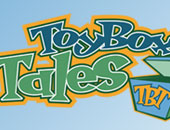7 Greatest Questions Facing KidMin
Membership Level› Guest
Author/Source: Roger Fields
Topic: KidMin, Trends
7 Greatest Questions Facing KidMin
The primary issue facing KidMin is defining what it is and is not, then shaping it accordingly. Perceptions of adult ministry are predictable. People expect preaching, teaching, counseling, weddings, funerals, music, fellowship and an annual picnic. In contrast, children’s ministry prompts a variety of expectations. Other than take-home papers and a summertime VBS, most people-even church boards-don’t know what children’s ministry should do or be. To help further the discussion, here’s my outlook on these fundamental questions.
1. Need or Vision?
Are you driven by what you need or by what you see? Every children’s ministry has needs. Many of them have critical needs. But people will rarely follow a need. They follow a vision. It is easier to recruit a team of people who have caught your vision than it is to beg people to help you out. Nobody ever volunteered for Jesus. He recruited the people He wanted based on His vision. “I will make you fishers of men” is a vision statement. “Please volunteer to be a teacher because the fifth grade boys killed two last week” is a need statement. Do you think in terms of what you need or do you plan based on your vision of what could be? Never stop clarifying your vision. Let your vision lead the way. Give people the opportunity to join a team that’s going somewhere. Talk about your vision more than you talk about your needs.
2. Images or Substance?
Are you willing to allow images to define your children’s ministry? Left unattended, children’s ministry will always be reduced to its lowest common denominator: cute pictures. David facing down the giant with a raggedy slingshot, Daniel sitting in the corner petting a cuddly lion and Noah leading cutesy animals two by two up the plank-all make great bulletin board décor. But left without explanation, they become religious images void of power. Children need to understand the substance of a Bible story. Noah trusted God when the whole world laughed at God. David believed the promises of God covered even big, loud giants. Daniel prayed openly to God in front of lots of mean people. In each case, God proved to be reliable. Boys and girls need a God they can believe in. Pictures don’t always rise to the task. After decorating the room, let the images fade into the background while you communicate the meaning of the Bible story.3. Circumstances or Choice?
Are we impacted more by events that happen to us or by the choices we make? The Bible is full of stories about real people who overcame real problems by making right choices. Making good choices will defeat bad circumstances. Help kids understand that lots of bad things will happen in this world, but their response will determine what quality of life they experience. Their choices of right and wrong will make the difference, even when circumstances rise up against them. Let kids know they don’t have to live under the dictatorship of circumstances. There is power in making right choices.4. Process or Decision?
Is salvation a process or a decision? While none of us knew very much when we accepted the Lord, people aren’t absorbed into the kingdom of God little by little; they are born into the kingdom of God all at once. And it happens because we made a decision. At some point, we decided to trust Jesus as our Lord and Savior. Salvation is not a process; it is a decision. Don’t let fear stop you from giving children the opportunity to make that decision. Jesus was the one who said “Do not forbid the little ones from coming to Me.” Peter closed his sermon on the day of Pentecost by saying “This promise is for you and your children.” Jesus never told children to act more like adults to come into the kingdom. He said it the other way around. He told adults to be more like kids to come into the kingdom. There is power in making a decision. There is exceptional power in making a decision to put your life and faith in Jesus. Ask this question. Could a child grow up connected to my church and never receive God’s gift of salvation? You don’t have to offer a traditional altar call, and high-pressured invitations are never appropriate for anyone, especially children. But some way, somehow give kids the opportunity to make a decision to receive Christ.5. Teach or Reach?
Are you focused on what you teach or what kids learn? There is a difference. You can teach Old Testament history, the life of Christ, your church doctrine and even a bag full of Greek words, but if the kids aren’t learning, none of it matters. What you teach means nothing. What kids learn means everything. Your scope and sequence needs to do more than impress the church board, it needs to connect with kids. Check your teaching methods. Do they meet your need to feel like a “real” teacher or the kids’ needs to learn? Traditional classroom methods might meet the expectations of your parents and church board but they will never reach today’s kids. Find out what communicates to the boys and girls God brings to you. Use interaction. Sing to music that relates to kids. Use drama. Don’t be afraid to try new teaching method. It might work.6. Passive or Active?
Are children the church of tomorrow or are they part of the church of today? While kids are still learning and growing that doesn’t mean they are in a spiritual holding tank until they grow up. Children are part of the church today. People who haven’t yet received the Lord are the church of tomorrow. You don’t have to grow up to serve God. Many kids in the Bible accomplished feats for God before they grew up. Samuel served God in the temple. A Jewish servant girl sent a military commander to a prophet to get healed of leprosy. David dropped Goliath. Josiah turned a nation back to God. A boy donated fish and bread so Jesus could feed a crowd. The only thing we know about Jesus between His birth and His baptism is that He had to be “about His Father’s business.” All were kids. And all served God before they grew up. Could it be that one reason adults today act as though sitting in church is their service to God is because we trained them that way? “Sit up straight with your hands to yourself” is the only challenge many of them received in church as kids. We trained them well. Encourage kids to pray for others, share their faith, lead praise and worship and serve in the church. Let them be about their Father’s business.
7. Values or Relationship?
Is our highest objective to provide good values or to lead kids to an authentic relationship with God? Life skills are vital and should be taught. But knowing God is better than having values. When a storm hits, a solid relationship with the living Lord is stabilizing while values get shaken. It is our knowledge of God that provides what we need for life and godliness (2 Peter 1:2-4). Help kids to know God. They will be drawn to whatever you focus on. Focus on God. It is the knowledge of God that will impact lives. If all you teach about are the evils of drugs, alcohol and sex you will draw kids to drugs, alcohol and sex. Teach them about God, His character, His promises, His plans. Let Bible stories illustrate what God is like. If you teach boys and girls about God, they will get to know Him. And that will last them for a lifetime.











